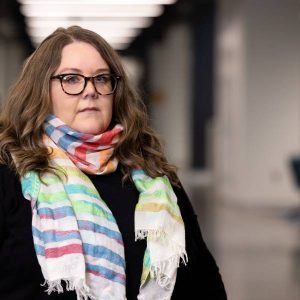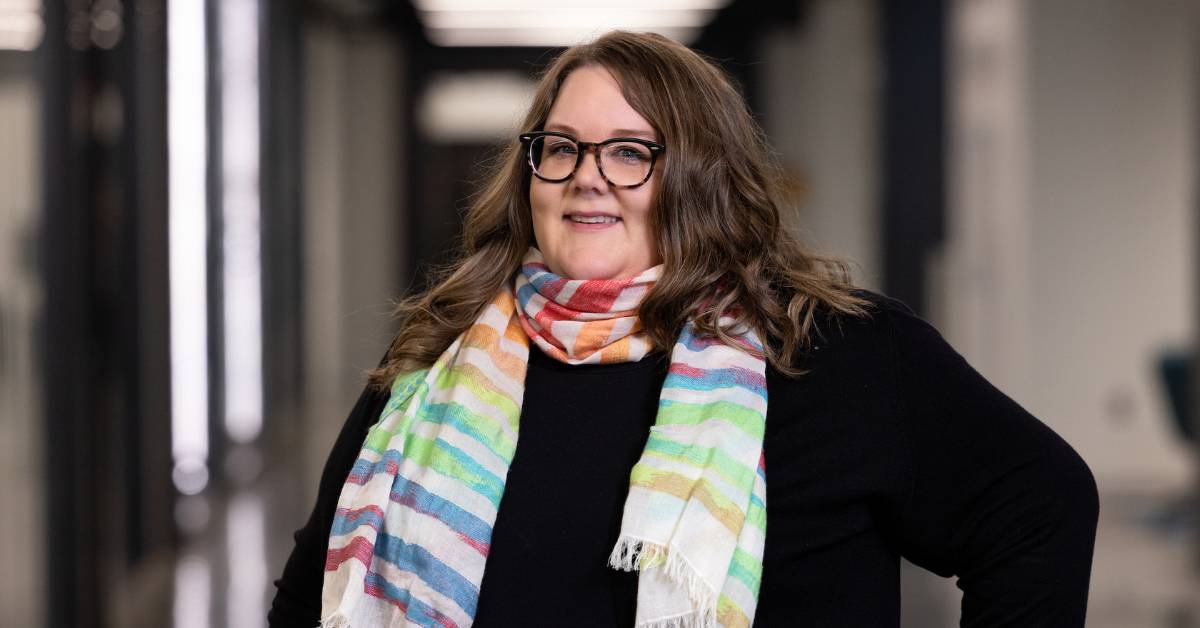Commit
Using “commit” emphasizes a pledge to prioritize antiracist efforts in making SPH a more welcome, equitable, and just organization.
What do you see as your role in antiracism?
“Human Resources (HR) plays a huge role in the work of antiracism, whether it be in the hiring process, making decisions about compensation and classification, or talking with managers about employee performance and development. In my role as a Senior HR Consultant, I’m fully immersed in this work through SPAR. These efforts very much align with my personal beliefs and values, so having the framework of SPAR allows me to propel important conversations and initiatives, putting these beliefs and values into practice.”
How do you plan to stay engaged in the SPH plan for antiracism?
“I had the honor of being the lead for our SPAR staff subcommittee for the first two years of the plan. I’m still an active member on the committee and now partner with the current SPAR staff lead, Laura Dawis, to continue the momentum of pushing our goals forward. We’re currently wrapping up a project on equitable compensation, which includes working with a statistician to perform a regression analysis of our staff workforce. It’s been really exciting and important work. Once that project is complete, we will focus on continuing to increase recruitment of diverse applicants in staff searches. Our plan is to provide resources for our hiring managers, such as how to conduct an antiracist search training. I’m also an active member on the SPAR faculty subcommittee, which focuses on SPAR faculty goals. Both of these roles keep me engaged in SPAR. The work of SPAR is all about creating a school culture that fosters inclusivity, growth, accountability, and connection; I’m here for it.”
Challenge
We are “challenged” to accept that racism exists and to “challenge” it when we see it.

What challenges do you face in prioritizing antiracist efforts?
“The changes we’re making with SPAR are big and impactful, but implementing these changes and dealing with logistics can be tricky. For example, when we’re hiring, there is always pressure to move fast and to fill openings as quickly as possible. But that can conflict with our need to follow necessary procedures to ensure we are being thoughtful and equitable in our hiring processes. In the past, there might have been pushback. Now, we can point to the SPAR as our collective commitment to make those changes.”
What antiracist change have you been excited to see happen at SPH the past few years, if any?
“SPAR is a really exciting initiative that has helped shift our school culture. It’s different from just having a DEI statement. It is a guiding document with tactics and goals that establishes checks and balances so that we are held accountable.. We hear time and time again in orientation that new employees were attracted to SPH because of SPAR. I also get really excited when reviewing the diversity makeup of applicant pools. Since coming to SPH I’ve seen a very notable increase in diverse applicants. I haven’t yet been able to pinpoint or identify why, but I believe it has to do with SPAR.”
Change
We have to be willing to “change” and shift our beliefs, attitudes, and actions toward equity and justice.
What change do you hope to see?
“I love what I’m seeing so far. SPH as a whole is composed of people who are dedicated to inclusion, antiracism, and justice. I hope that we can sustain that momentum and continue to watch our community grow in that direction. As someone who is actively working on SPAR goals, it is so encouraging to see and feel the support from the SPH community. That said, SPAR is a five year plan and we are more than halfway through it. I think we’ll need to shift our focus to what’s coming next and how to continue to propel this important work forward.”
How will you need to shift your own beliefs, attitudes, or actions toward equity and justice?
“As a white, cisgender, straight woman, it is important for me to be aware of my privilege. I try to look at situations with a sense of empathy and compassion. I believe for the most part people try to do their best and sometimes there are barriers that need to be identified, especially when it comes to equity and justice. Also, those barriers may look different based on identities. I try to be mindful of that.”
“Building Equity, Driving Justice: Commit | Challenge | Change” — ties all communications related to the SPH Strategic Plan for Antiracism together under one look and feel. The theme showcases our guiding principles, and it motivates and inspires. "Agents for Change" profiles support this theme and all interview questions are related to the action words, Commit, Challenge, Change, as described above.
Submit an idea for this profile series — either your own story, or one that inspires you from another SPH individual or group.

